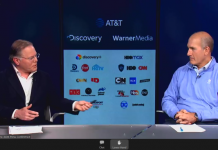Is consolidation still cool? A number of big deals have collapsed in recent days, whether it’s just the dog days of summer or something else in the air.
Most notably, Rupert Murdoch suddenly cooled on acquiring Time Warner, when it turned out Warners head Jeff Bewkes—and more importantly, Fox stockholder—weren’t so eager to canoodle. The sudden retreat was said to be uncharacteristic of Murdoch, however, who usually gets his company:
The announcement stunned long-time watchers of Mr Murdoch, who rarely gives up without a fight and typically wins the day. The abruptness of the withdrawal was all the more surprising, given that the offer that had been rejected was an opening gambit and a drawn-out takeover tussle looked to be in prospect. “He completely misread the situation,” says one long-time observer of both companies. “He premised his approach on the idea that Jeff Bewkes [Time Warner’s chief executive] wanted to sell and would do so on any terms.”
Over at the mobile carrier ranch, Sprint’s longed-for takeover of T-Mobile also got the kibosh thanks to watchful feds, who decided four big phone companies is better than three:
Regulatory concerns seem to hint at the fact that the government essentially did not want to approve a merger of this kind. In fact, Federal Communications Commission Chairman Tom Wheeler said keeping four large carriers was “good for American consumers.” “Sprint now has an opportunity to focus their efforts on robust competition,” Wheeler said in a statement. Along with other regulators, Wheeler has been public about his skepticism on a merger between the two carriers.
And even old school publishers had the urge to merge, as Hachette and Ingram were planning to split up book company Perseus—Hachette would get the publishing end, and Ingram, the immense book wholesaler, would get the distribution business. But that deal, too, faded away when the three way just didn’t work out:
A letter sent to Perseus employees Thursday afternoon, from Perseus CEO David Steinberger, said that despite much effort from all three parties “we could not reach an agreement on everything necessary to close the transaction.” Representatives from both Hachette and Ingram confirmed that the deal was off, but would not offer further comment. The deal was originally set to be completed at the end of July but, last week, notices were sent to Perseus employees explaining that the parties were not able to finalize the transaction by the end of the month. Despite the delay, employees were told the deal was still expected to be finalized by the end of August.
Is the consolidation era over? No way. Comcast is still set to acquire Time Warner Cable, perhaps training TWC’s employees so they aren’t idiots along the way. And some feel the street thinks mergers are the only way to grow the sputtering economy:
“The corporate sector has been kind of out of it in creating any sort of growth,” Savita Subramanian, an equities strategist with Bank of America Merrill Lynch, said. “So maybe this is the first salvo in a corporate-spending-driven economic recovery.”
So far this year, $2.2 trillion in deals has been announced globally, according to data from Thomson Reuters. That total represents a 67 percent increase from the same period last year, and it is setting up 2014 to be a robust year for deal makers.
To this consumer, healthy competition is better for the economy than mega-corps trading money, but what do I know. Things may have calmed down for the next two minutes but don’t be too surprised if more big and small consolidation is still on the way.









Comcast employees won’t be able to teach Time Warner employees anything. Trust me.
Corporate consolidation is all about making rich people more rich. That will never go out of fashion … among the rich. The only things that hold it back are a) the government, or b) rich people who would become less rich (or less more-rich) in the process.
The only way to “grow the economy” is to get more money into the hands of consumers, so they’ll buy more goods and services. That requires a) higher wages, and b) more opportunities for them to start their own (small) businesses. Consolidation works against both of those.
Comcast is still set to acquire Time Warner Cable, perhaps training TWC’s employees so they aren’t idiots along the way.
Um – Comcast and TWC are pretty much tied for worst customer service in all industries across the US. In fact IIRC Comcast usually scores lower on customer satisfaction surveys than TWC does, but it’s usually a race to the bottom between the two of them.
Merging a company with bad service with another company with bad service is really, really, really unlikely to create a company with good service. In fact, after the merger I wouldn’t be surprised to hear that they eliminate both of their customer service centers and replace them with a recording of the CEO counting his money and laughing when you call for help.
Many of the mergers are occurring so that U.S. corporations can off-shore their tax liabilities, via tax inversions.
http://www.bloomberg.com/news/2014-07-21/merger-rush-for-offshore-tax-break-bets-on-u-s-stalemate.html
I’ve had TW and I’ve had Comcast. New Yorkers may find this hard to believe, but TW customer service is a lot better than Comcast. It’s possible, and you’re about to have the sorry of finding out.
Of everything I wrote this morning, I didn’t expect my throwaway Time Warner customer service joke to get the most response.
You guys really do read this thing.
I think I’ve mentioned this before but one heroic TW serviceman once called on Stately Beat Manor, and he quickly explained things like how to use the remote, setting up the DVR and other tips and tricks I never had an idea existed.
He was never heard from again.
I got great service from Comcast tech recently, who came to my house on a Sunday morning, found I had noise on my line, and ran a whole new cable from the pole to my living room (through the basement), and didn’t leave until he’d confirmed I was getting the data speeds I’d paid for.
Of course he was an independent contractor, not a Comcast employee … that is, a “small business owner”.
Comments are closed.